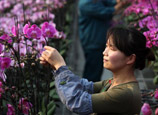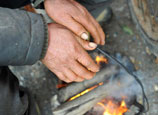
Local health care authorities provide registered rural doctors with a monthly subsidy of 750 yuan (120 U.S. dollars); however, retired doctors receive just 65 yuan, according to Zhang.
Zhang's father has worked as a village doctor for over 40 years and is still working at the clinic.
Similar concerns, among others, were aired by rural doctors during a seminar held last week in Beijing.
Zhong Jing, a doctor from a rural area of southwest China's Guizhou Province, said rural doctors need more training, as they are finding difficulties in handling the work they are currently tasked with.
Vice Premier Li Keqiang said at the seminar that a better mechanism for covering rural clinics' medical risks with insurance should be established. He also called for more help and support for rural doctors.
"Rural doctors are the guardians of the country's primary medical and health care system at the community level. This system cannot afford to be weakened," Li said.
Authorities introduced doctors to rural areas in the early 1960s, when doctors were in extremely short supply in the countryside. Nearly 2 million people became registered rural doctors after undergoing a short training period, rather than by obtaining a proper medical degree.
Although the effort helped to reduce child mortality rates and battle infections, it also resulted in the creation of a generation of poorly trained rural doctors.
China currently has about 1.1 million rural doctors serving some 656 million rural residents.

















 Students take exams without invigilator in Hangzhou
Students take exams without invigilator in Hangzhou


![]()
